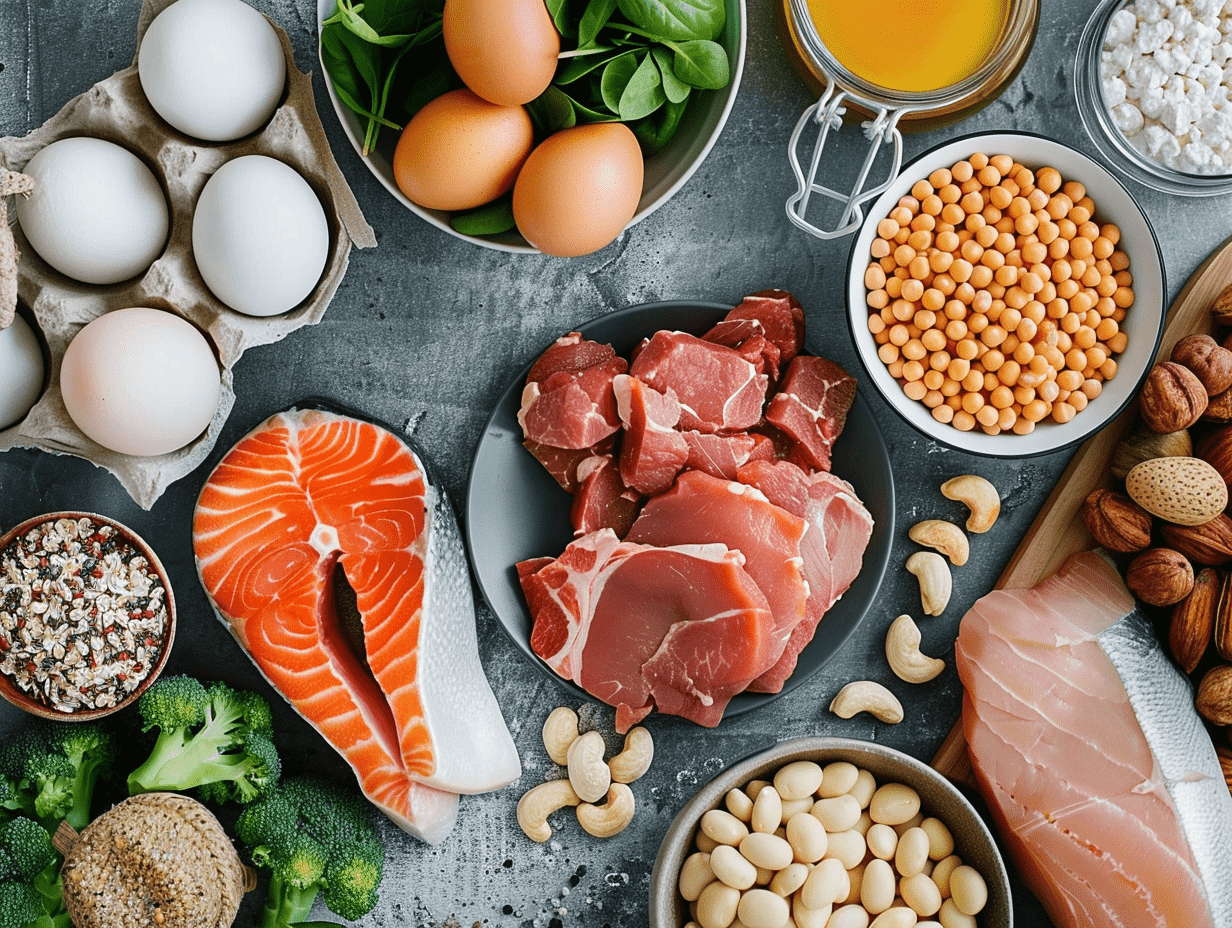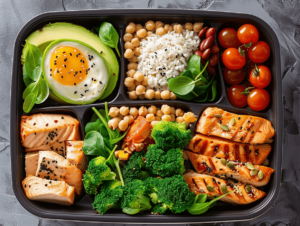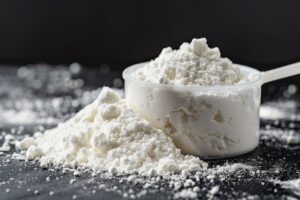When it comes to bulking, choosing the right high-calorie foods is crucial for maximizing your gains. You want to focus on nutrient-dense options that pack a punch in terms of calories and essential nutrients. Here are some of the best high-calorie foods to include in your bulking diet:
Peanut Butter
Peanut butter is a classic bulking staple, and for good reason. Just two tablespoons of this creamy spread contain around 200 calories, making it an easy way to boost your calorie intake. Plus, it’s loaded with healthy fats, protein, and fiber, keeping you full and satisfied.
Olive Oil
Olive oil is another excellent source of healthy fats and calories. Drizzle it over your salads, use it to cook your meals, or even add a tablespoon to your protein shakes for an extra calorie kick. Just remember, a little goes a long way regarding this calorie-dense oil.
Avocado Toast
Avocado toast has become a trendy breakfast option in recent years, but it’s also an excellent choice for bulking. Mash up half an avocado on a slice of whole-grain toast, and you have a quick and easy meal packed with healthy fats, fiber, and calories. Top it with sea salt and red pepper flakes for an extra flavor boost.
Healthy Fats for Bulking
Incorporating healthy fats into your bulking diet is essential for supporting hormone production, brain function, and overall health. But not all fats are created equal. Here’s what you need to know about healthy fats for bulking:
Saturated Fats
Saturated fats have gotten a bad rap recently, but they’re not all bad. Some, like those found in coconut oil and grass-fed butter, can be beneficial for bulking. Be sure to consume them in moderation and balance them with other healthy fat sources.
Fat-Soluble Vitamins
Fat-soluble vitamins, like vitamins A, D, E, and K, require fat for proper absorption in the body. You must include healthy fat sources, like avocados, nuts, and fatty fish. These foods not only provide essential vitamins but also help keep you feeling full and satisfied.
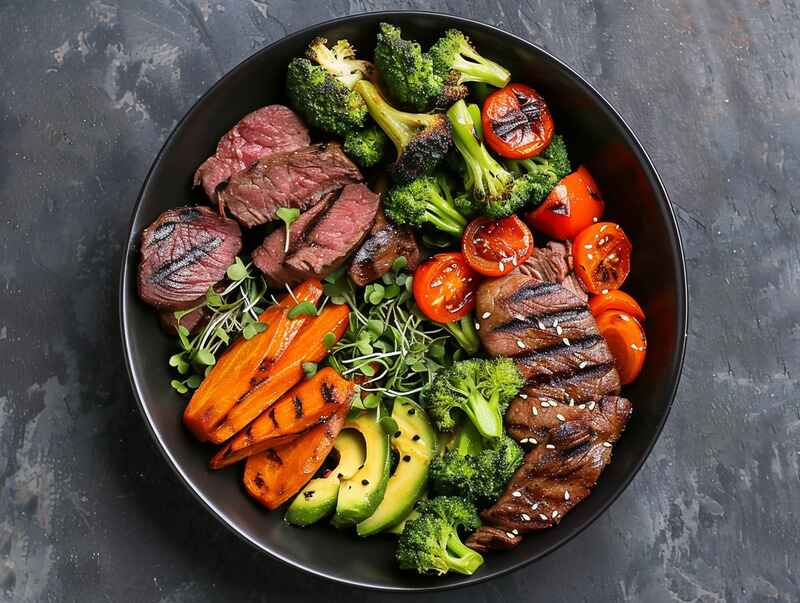
Bulking Meal Plan: A Week of High-Calorie Meals
Planning out your weekly meals can make bulking easier and less stressful. Here’s a sample bulking meal plan to get you started:
Meal Prep Tips
Before diving into your meal plan, consider these meal prep tips to make your life easier: – Cook in bulk on the weekends to save time during the week – Use a slow cooker or Instant Pot to make large batches of protein-rich meals – Pre-portion your meals into individual containers for easy grab-and-go options.
Overnight Oats
Overnight oats are a great breakfast option for bulking. Simply mix rolled oats, your choice of milk, and your favorite toppings (like nuts, seeds, and fruit) in a jar or container and let it sit in the fridge overnight. In the morning, you’ll have a delicious and filling breakfast ready.
Chicken Thighs
Chicken thighs are a great protein option for bulking, as they’re higher in calories and fat than chicken breasts. Try baking them in the oven with olive oil, garlic, and herbs for an easy and flavorful meal. Pair them with roasted sweet potatoes and a side salad for a well-rounded dinner.
Building Muscle: The Role of Protein in Bulking
Protein is essential for building and repairing muscle tissue, making it a crucial component of any bulking diet. But how much protein do you need, and what are the best sources? Let’s dive in:
Essential Amino Acids
Essential amino acids are the building blocks of protein your body can’t produce alone. That’s why it’s necessary to include a variety of protein sources in your diet, like lean meats, fish, eggs, and dairy products. These foods contain all the essential amino acids your body needs to build and repair muscle tissue.
Whey Protein
Whey protein is a popular supplement among bodybuilders and fitness enthusiasts, and for good reason. It’s a fast-digesting protein that is quickly absorbed by the body, making it ideal for post-workout recovery. Add a scoop of whey protein to your morning smoothie or oatmeal for an extra protein boost.
Greek Yogurt
Greek yogurt is another excellent protein source for bulking. It’s more protein than regular yogurt and contains probiotics, which can support gut health. Try topping your Greek yogurt with granola, fruit, and a drizzle of honey for a tasty, protein-packed snack.

Bulking Foods: Nutrient-Dense Options for Weight Gain
When it comes to bulking, it’s not just about eating more calories – it’s about eating the right kinds of calories. Nutrient-dense foods are essential for supporting muscle growth and overall health. Here are some of the best bulking foods to include in your diet:
Sweet Potatoes
Sweet potatoes are an excellent source of complex carbohydrates, fiber, and vitamins A and C. They’re also relatively high in calories, making them a fantastic option for bulking. Try baking them in the oven and topping them with some cinnamon and a dollop of Greek yogurt for a tasty and nutritious snack.
Cottage Cheese
Cottage cheese is a great source of protein and calcium, making it an excellent addition to any bulking diet. It’s also relatively low in calories compared to other cheese varieties, so you can eat more without overdoing it on the fat and calories. Mix cottage cheese with some fruit and nuts for a quick and easy snack.
Ground Beef
Ground beef is a great source of protein and calories, making it an excellent choice for bulking. Look for lean ground beef (90% or higher) to minimize your saturated fat intake. Use ground beef in tacos, chili, or burger patties for a satisfying, protein-packed meal.
Carbohydrates for Bulking: Fueling Your Gains
Carbohydrates are essential to any bulking diet, as they provide the energy your body needs to power through intense workouts and support muscle growth. But not all carbs are created equal. Here’s what you need to know about carbohydrates for bulking:
Brown Rice
Brown rice is a great source of complex carbohydrates and fiber, making it an excellent choice for bulking. It’s also relatively low in calories compared to other grains, so you can eat more of it without overdoing it on the calories. Try pairing brown rice with your favorite protein source and roasted vegetables for a well-rounded meal.
Whole Grain Bread
Whole-grain bread is another great source of complex carbohydrates and fiber. Look for bread that lists whole wheat or another whole grain as the first ingredient, and try to avoid bread with added sugars or preservatives. Toast a slice of whole-grain bread with almond butter and sliced banana for a tasty and nutritious snack.
Minimizing Fat Gain
While carbohydrates are essential for bulking, choosing the suitable types of carbs is important to minimize fat gain. Focus on complex carbohydrates like whole grains, fruits, and vegetables, and limit your intake of simple sugars and refined carbs. These carbs can cause blood sugar spikes and crashes, increasing hunger and cravings.
Calorie Surplus: How Many Extra Calories Do You Need?
To gain weight and build muscle, you need to be in a calorie surplus – meaning you consume more calories than you’re burning. But how many extra calories do you need? Let’s break it down:
Controlled Calorie Surplus
While it may be tempting to go all-out and eat everything in sight when trying to bulk up, it’s essential to be strategic about your calorie surplus. Aim for a controlled surplus of around 300-500 calories daily, depending on your goals and body composition. This will help minimize fat gain while still supporting muscle growth.
Maintenance Calories
To determine your calorie needs for bulking, you first need to know your maintenance calories – the number of calories your body needs to maintain its current weight. Many online calculators can help you estimate maintenance calories based on age, height, weight, and activity level.
Calories Needed
Once you know your maintenance calories, you can add your desired surplus to determine your total calorie needs for bulking. For example, if your maintenance calories are 2500 per day and you want to add a 500-calorie surplus, you must consume 3000 calories daily to support your bulking goals.
Clean Bulking vs. Dirty Bulking: Which Approach Is Better?
When it comes to bulking, there are two main approaches: clean bulking and dirty bulking. Here’s what you need to know about each approach:
Clean Bulk
Clean bulking involves focusing on whole, nutrient-dense foods to support muscle growth and minimize fat gain. This approach emphasizes lean proteins, complex carbohydrates, and healthy fats while limiting processed foods and added sugars. Clean bulking may result in slower weight gain than dirty bulking, but it’s generally considered a healthier and more sustainable approach.
Dirty Bulk
Dirty bulking, on the other hand, involves eating everything in sight to maximize calorie intake and support rapid weight gain. This approach often includes high-calorie, processed foods like pizza, burgers, and ice cream. While dirty bulking can lead to faster weight gain, it can also result in excessive fat gain and potential health issues down the line.
Junk Food
Regardless of your chosen approach, it is essential to limit your junk food intake and focus on whole, nutrient-dense foods as much as possible. While the occasional treat is fine, relying too heavily on processed foods can lead to nutrient deficiencies and other health issues over time.

Gaining Weight the Right Way: Tips for Successful Bulking
Bulking up can be a challenging process, but with the right approach, it’s achievable. Here are some tips for gaining weight the right way:
Increase Protein Intake
As mentioned earlier, protein is essential for building and repairing muscle tissue. Aim to consume around 1 gram of protein per pound of body weight daily, spread out over several meals and snacks. This will help ensure your body has the building blocks to support muscle growth.
Choose the Right Foods
When it comes to bulking, quality is just as important as quantity. Focus on whole, nutrient-dense foods like lean proteins, complex carbohydrates, and healthy fats. These foods will give your body the energy and nutrients it needs to support muscle growth and overall health.
Bulking Takes Time
Finally, remember that bulking is a process that takes time and consistency. Wait for dramatic results overnight – building muscle and gaining weight takes weeks and months of dedicated effort. Stay patient, trust the process, and celebrate your progress.
Frequently Asked Questions
What is the Best Meal for Bulking?
The best meal for bulking should include healthy foods high in calories, protein, healthy fats, and complex carbohydrates. Here’s an example of an ideal bulking meal:
- Protein: Grilled chicken breast or lean beef
- Carbohydrates: Brown rice or quinoa
- Vegetables: Steamed broccoli or spinach
- Fats: Avocado or olive oil
- Extras: Hard-boiled eggs and a protein shake
This combination ensures a good balance of macronutrients essential for muscle building, muscle gain, and overall muscle mass.
Can You Bulk for 4 Weeks?
Yes, you can bulk for four weeks, but it may be shorter than ideal for significant muscle gains. Bulking cycles typically last 8-12 weeks to allow for substantial muscle mass growth. However, a 4-week bulk can still yield noticeable improvements in muscle gain if you maintain a calorie surplus and follow a rigorous workout routine. Consistency in consuming nutritious foods and maintaining a high total calorie intake is crucial, even if muscle building doesn’t happen overnight.
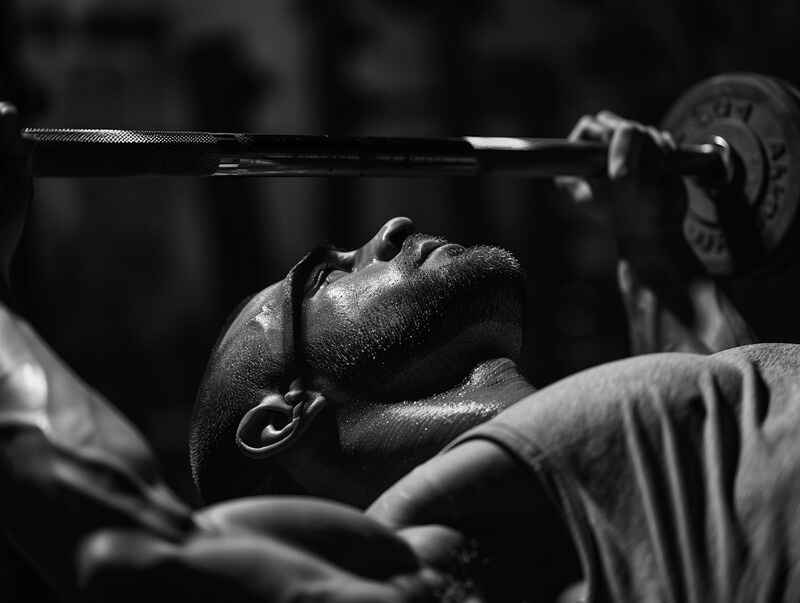
Is 4 Meals a Day Good for Bulking?
Yes, four meals a day can be good for bulking as long as you consume enough daily calories and protein across these meals. The key is ensuring that each meal is nutrient-dense and balances protein, carbs, and fats. Including healthy foods like minimally processed options and whole foods in your meals is essential. Adding snacks or protein shakes between meals can help you meet your calorie-bulking needs and ensure adequate muscle building.
How to Get 3000 Calories a Day?
To consume 3000 daily calories, you can follow this approach:
- Breakfast: Oatmeal with nuts, berries, and honey; scrambled eggs with avocado and whole-grain toast
- Snack: Protein powder shake with a banana and peanut butter
- Lunch: Grilled chicken with quinoa, mixed vegetables, and olive oil
- Snack: Greek yogurt with granola and fruit
- Dinner: Salmon or steak with sweet potatoes and asparagus
- Evening Snack: Cottage cheese with almonds and a handful of dried fruit
Incorporating healthy bulking foods and focusing on nutritious food choices will help you reach your total calorie goals without adding too much fat or risking high cholesterol.
Is Pasta a Good Food for Bulking?
Yes, pasta is one of the best foods for bulking. It is high in carbohydrates, providing energy for intense workouts and muscle recovery. Pairing pasta with a protein source like chicken, beef, or tofu and adding healthy fats from olive oil or cheese makes it a well-rounded meal for muscle gain and muscle building.
What Food is Good to Make in Bulk?
Foods that are good to make in bulk for convenience and cost-effectiveness include:
- Chicken breast or thighs: Can be grilled, baked, or slow-cooked and stored for several meals.
- Rice and quinoa: Easy to cook in large quantities and store for the entire week.
- Vegetables: Broccoli, carrots, and bell peppers can be roasted or steamed and kept in the fridge.
- Beans and legumes: Great sources of protein and fiber that can be used in various dishes.
- Oatmeal: Can be prepared overnight in large batches for quick breakfasts.
- Sweet potatoes: Baked or roasted in large quantities for easy meal additions.
These healthy bulking foods can be combined in different ways to create diverse, nutrient-dense meals throughout the week. Adding protein powder to your diet can also help increase your total calorie intake and support muscle-building efforts.
Wrapping up
In conclusion, bulking up requires a strategic approach focusing on proper nutrition and training. If you need more advice on bulking, remember to visit our dedicated bulking guide.
By incorporating the right foods, staying consistent with your workouts, and being patient with the process, you can achieve your bulking goals and build the strong, muscular physique you’ve always wanted.
Remember, gaining weight is not about eating everything in sight – it’s about fueling your body with the nutrients it needs to support muscle growth and overall health. So, choose wisely, stay focused, and enjoy the journey!



